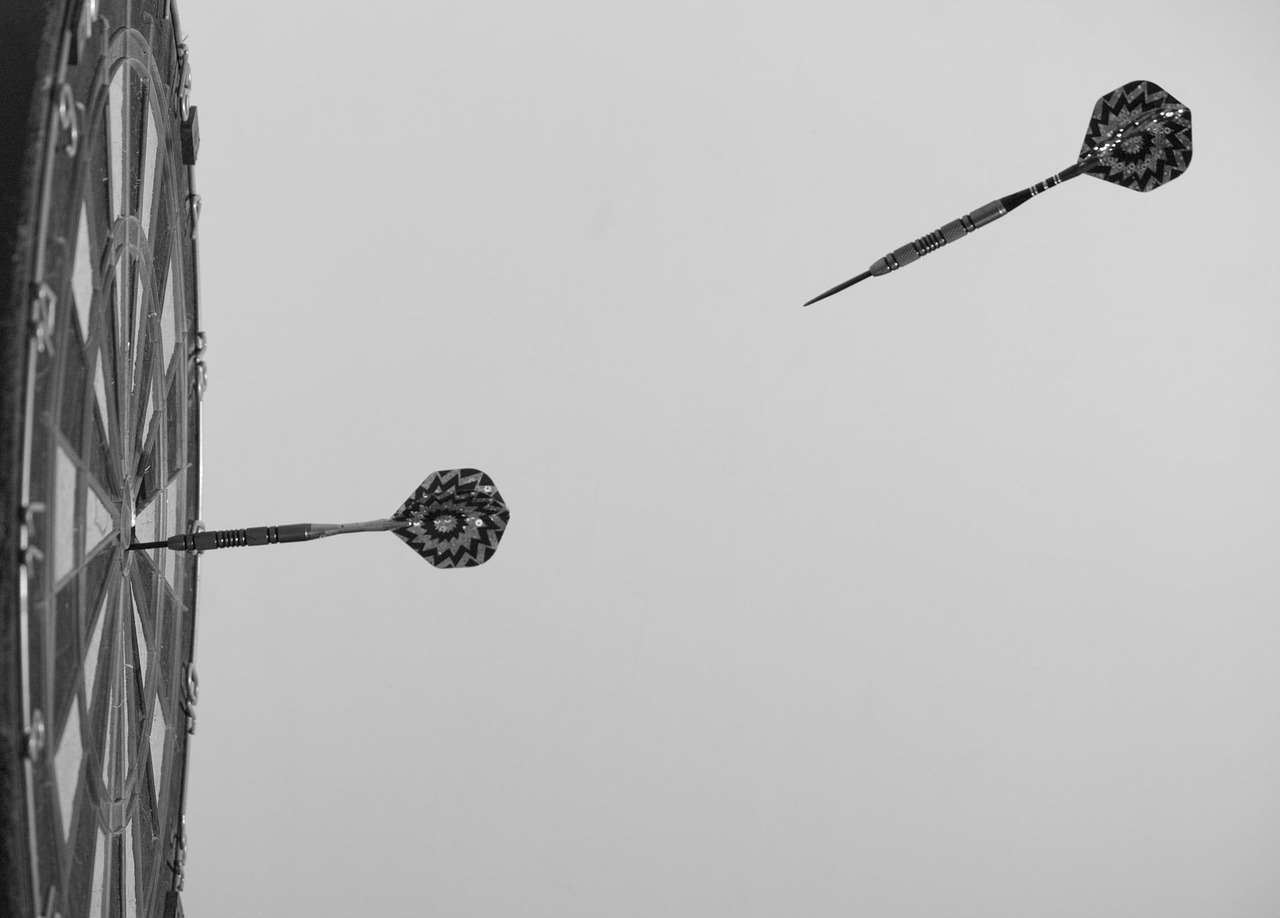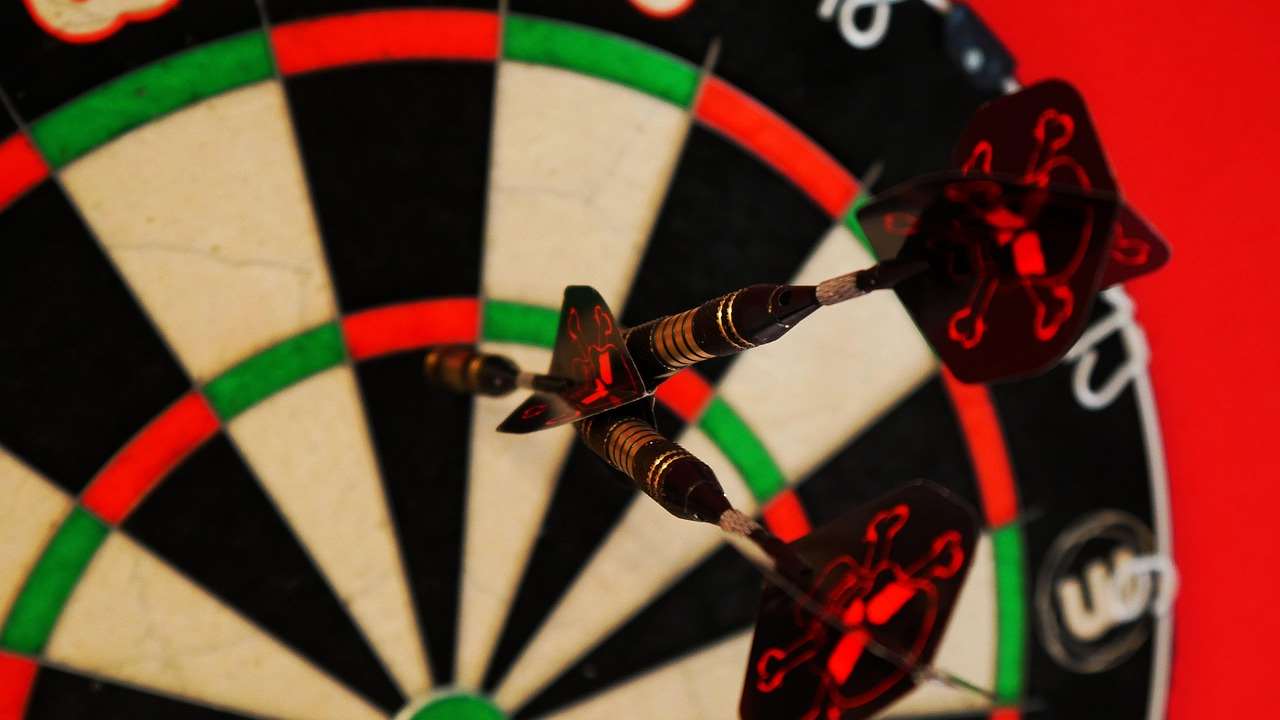The key to preventing fatigue in darts is a holistic approach focusing on physical and mental preparedness. This means optimizing your training, improving your technique, and understanding the importance of rest and recovery. In this article, we’ll delve into the specific strategies that will help you maintain peak performance and avoid burnout, covering everything from proper posture to nutrition and mental conditioning.
⚠️ Still Using Pen & Paper (or a Chalkboard)?! ⚠️
Step into the future! The Dart Counter App handles all the scoring, suggests checkouts, and tracks your stats automatically. It's easier than you think!
Try the Smart Dart Counter App FREE!Ready for an upgrade? Click above!
To truly understand preventing fatigue in darts, we must first address the physical demands of the game. Consistent practice, especially at a high level of intensity, can take a toll on your body. This is especially true for the muscles in your shoulders, arms, and back. Therefore, building strength and endurance in these areas is essential. And let’s not forget the mental aspect; prolonged focus and pressure can lead to mental fatigue just as easily as physical exertion. A strategy for preventing fatigue in darts must include both physical and mental preparation.
Preventing Fatigue in Darts: Physical Conditioning
Many dart players underestimate the physical demands of the game. While it might not look strenuous, maintaining a stable stance and delivering consistent throws requires significant muscular control and endurance. To combat physical fatigue, incorporate a targeted training regimen into your routine. 
Strength Training for Darts
Focus on exercises that strengthen your core, shoulders, and back. Plank variations, rows, and overhead presses are excellent choices. Remember that building strength isn’t just about lifting heavy weights; it’s also about building muscular endurance, enabling you to maintain your form and accuracy over longer periods. Proper form is paramount. Improper lifting techniques can lead to injuries, setting you back further in your quest to avoid fatigue.
Flexibility and Mobility
Regular stretching is crucial for preventing muscle stiffness and improving your range of motion. This will translate into smoother, more consistent throws. Consider adding yoga or Pilates to your routine; these practices enhance both flexibility and mental focus, contributing significantly to preventing fatigue in darts. A flexible body is a resilient body, better equipped to handle the rigors of intense competition or prolonged practice sessions.
Proper Posture and Oche Setup
Your posture at the oche is critical. Maintaining proper alignment reduces strain on your back and shoulders, thus combating fatigue. Read more about optimizing your oche ergonomics for home setup for maximum comfort and efficiency. This involves ensuring the correct height of your oche and maintaining a natural, relaxed stance that allows for optimal throwing mechanics. Poor posture can severely impact your game and increase the risk of injury leading to burnout.
Preventing Fatigue in Darts: Mental Fitness
The mental game in darts is just as important, if not more so, than the physical aspect. Maintaining focus and concentration during a match or a long practice session is key to preventing fatigue in darts. Prolonged stress can deplete mental resources, leading to poor performance and burnout. 
Mindfulness and Meditation
Practicing mindfulness and meditation techniques can help you improve your focus, reduce stress, and enhance your overall mental well-being. These techniques promote a calm and clear mind, enabling you to maintain your concentration during intense matches. Even short, regular meditation sessions can make a significant difference in your mental stamina.
Visualization and Positive Self-Talk
Visualizing successful throws and using positive self-talk can significantly boost your confidence and reduce pre-game anxiety. By repeatedly envisioning yourself throwing perfect darts, you can improve your mental preparation and reduce the stress associated with competition. Positive self-talk replaces self-doubt with confidence, enhancing your performance under pressure.
Strategic Breaks and Rest
Incorporating regular breaks during practice or competition is vital for preventing fatigue in darts. These breaks allow your body and mind to recover, preventing burnout and maintaining peak performance. Short breaks every hour during practice, for example, can significantly enhance both physical and mental resilience.
Nutrition and Hydration
What you eat and drink has a considerable impact on your energy levels and overall performance. A balanced diet rich in fruits, vegetables, and lean protein provides sustained energy, preventing the energy crashes that can lead to fatigue. Staying properly hydrated is just as crucial; dehydration can significantly impair both physical and mental performance. 
Read more about Fatigue and nutrition darts to learn more about the specific nutritional requirements for maintaining peak performance in darts.
Preventing Fatigue in Darts: Vision Training
Sharpening your visual acuity is often overlooked in darts training, but it plays a pivotal role in consistent accuracy. Improving your focus, hand-eye coordination, and peripheral vision is paramount. We know that preventing fatigue in darts is not just about the physical, but also about maintaining peak mental and visual performance.
Consider incorporating vision training exercises into your routine. These exercises can enhance your ability to accurately judge distance and track the dart’s flight path, resulting in improved precision and consistency. Regular vision training can dramatically improve your overall game and help to reduce fatigue caused by eye strain and poor focus. Check out our resource on Vision training for dart player success and learn more about our Vision training programs darts.
Preventing Fatigue in Darts: Cross Training
Engaging in cross-training activities that improve your overall fitness can enhance your stamina and reduce the risk of injury. Activities like running, cycling, or swimming improve cardiovascular health, leading to improved endurance on the dartboard. Moreover, these activities are great for mental health and relaxation, helping with stress reduction and improved concentration.  Remember, preventing fatigue in darts requires a well-rounded approach to physical fitness.
Remember, preventing fatigue in darts requires a well-rounded approach to physical fitness.
Read about Cross training for improved focus and Cross training for mental fitness.
Preventing Fatigue in Darts: Breathwork and Relaxation Techniques
Proper breathing techniques, such as diaphragmatic breathing, can help regulate your nervous system and reduce stress. Incorporating diaphragmatic breathing exercises into your routine can promote calmness and focus, preventing both physical and mental fatigue. This deep breathing technique is known for lowering heart rate and blood pressure, thus reducing stress and improving overall performance. Deep, controlled breaths before throws can significantly improve your concentration and consistency. You can find more information on Diaphragmatic breathing darts.
Alcohol and Preventing Fatigue in Darts
While social events often involve alcohol, it’s crucial to remember that moderate to heavy alcohol consumption can significantly impact your performance. Alcohol dehydrates you and impairs coordination and judgment, directly contradicting your efforts in preventing fatigue in darts. For optimal performance, alcohol should be minimized, especially before and during competitions. This is important for maintaining consistent performance and preventing performance-related fatigue. Review our guidelines on Alcohol and sportsmanship darts.
Understanding Your Body’s Signals
Learning to recognize the early signs of fatigue is crucial for preventing burnout. Pay attention to your body’s signals – muscle soreness, lack of focus, decreased accuracy – and adjust your training accordingly. Don’t push yourself too hard; rest and recovery are just as important as practice. 
Conclusion: A Holistic Approach to Preventing Fatigue in Darts
Preventing fatigue in darts isn’t just about physical strength; it’s a multifaceted strategy encompassing physical conditioning, mental fitness, proper nutrition, vision training, and effective rest. By incorporating the strategies discussed – strength training, flexibility exercises, mindfulness techniques, vision training, and strategic breaks – you can significantly improve your stamina, consistency, and overall enjoyment of the game. Remember to listen to your body, adjust your training accordingly, and maintain a holistic approach. This comprehensive approach will help you achieve your goals and extend your career as a dart player. Learn more about maintaining your overall health through Darts Fitness Health.
Ready to elevate your game and conquer fatigue? Start implementing these tips today!
Hi, I’m Dieter, and I created Dartcounter (Dartcounterapp.com). My motivation wasn’t being a darts expert – quite the opposite! When I first started playing, I loved the game but found keeping accurate scores and tracking stats difficult and distracting.
I figured I couldn’t be the only one struggling with this. So, I decided to build a solution: an easy-to-use application that everyone, no matter their experience level, could use to manage scoring effortlessly.
My goal for Dartcounter was simple: let the app handle the numbers – the scoring, the averages, the stats, even checkout suggestions – so players could focus purely on their throw and enjoying the game. It began as a way to solve my own beginner’s problem, and I’m thrilled it has grown into a helpful tool for the wider darts community.